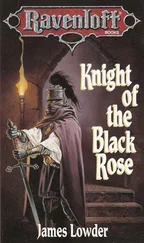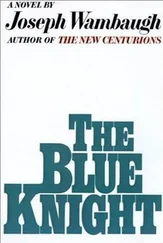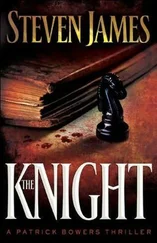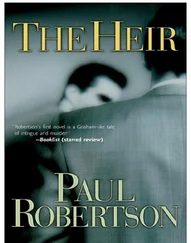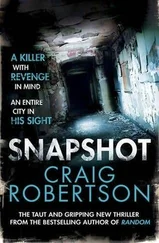One afternoon, John found his brother downing rum in a Kingston grog shop with two men of very different physical appearance. One was yet another Scot, not much older, black-haired, clean-shaven, neatly dressed. In his white linen shirt and light, black short coat he seemed to be coping well with the heat. His whole air was one of self-assurance. This was David Fyfe, a medical graduate of Edinburgh who had been in Jamaica eight months. The other man was huge, sixtyish, bulb-nosed and florid. A once white, now tobacco-yellow peruke, in a style that might have been fashionable under Queen Anne, was crammed on his wrinkled forehead, and this, together with the combined weight of a thick brown coat and ornately brocaded waistcoat, was causing him to sweat like a fountain.
James shouted John over and called for another chair, another glass and another bottle of rum. It was both hard and easy to believe he was still only sixteen.
‘Davie, James,’ John greeted them, taking the seat.
‘This,’ said James to the fat man, ‘is my esteemed elder brother John Wedderburn, late of Scotland, now a colonist like the rest of us. John, it is my pleasure and so forth to introduce Mr Thomas Underwood of – where did you say again?’
‘Amity Plantation, sir, in the parish of Westmoreland, county of Cornwall. My pleasure, sir, and an honour. Always an honour to meet another Scotchman. Not that it’s difficult here. You’re almost as numerous as the negers. No offence, naturally.’
He spoke with a mild Yorkshire accent, the words interspersed with heavy rasping breaths and much wiping of the brow. His unsuitable dress, clearly the chief source of his discomfort, seemed to indicate a newcomer. In fact Mr Underwood had been on the island nearly thirty years, but would never get used to the heat. He had small eyes made smaller by the encroaching folds of his cheeks. He tipped his fleshy head at John.
‘Now, sir, it’s all one to me, I assure you, but were you out ?’
John had an idea that Mr Underwood, through James, already knew the answer. He drew himself up proudly: ‘That, sir, is not a question one gentleman expects to be asked by another.’
Underwood shrugged. ‘I’ll take that as an aye. No, no, don’t be offended, Mr Wedderburn, I don’t care a bit, and you’ll find very few folk as do. We’re an island of tolerance – we’re only here to get rich after all, and you can’t hold that against nobody. I only ask on account of you Scotchmen are such a curious breed. You’ll murder each other over crowns and creeds at home, but here the loyalest of you falls on his rebel compatriot like a brother. The sun does something to you it don’t do to Englishmen: it seems to dry up all your grudges.’
‘Mr Underwood’s plantation,’ James said, ‘is not far from where George Kinloch is. Mr Underwood knows George quite well.’
‘Indeed I do,’ Underwood said. ‘Not a grudge on that gentleman’s person.’
‘And what brings you to Kingston, sir?’ John asked.
‘A scramble, sir,’ Underwood said. ‘Tomorrow morning. I’m hoping to pick up some cheap slaves to replace half a dozen I lost at Christmas to the flux.’
‘But there’s a regular market at Savanna-la-Mar,’ John said. ‘Surely it’s a long and hazardous trip to come all this way for slaves?’
‘Oh, dreadful hazardous,’ Underwood agreed with enthusiasm. ‘A hundred miles and more on roads that would shake the teeth out of many men – not that you can call them roads, in some parts. But I’ve been visiting friends here, you see, and they’ve given me some fine heavy bits of furniture which I intend to ship home along with the new slaves, if I can get some. Are you in the market for slaves yourself, Mr Wedderburn?’ he asked John.
‘Not yet,’ said John.
‘But we will be,’ said James.
‘You should come along with me in the morning. I can show you what to look out for when you’re buying them up cheap. In a scramble, I mean.’
‘What,’ says James, ‘is a scramble?’
‘Just what it sounds like. The shipmasters have sorted their negers out by the time they get here, they’ve decided which ones they can sell at premium, which ones are ailing, which ones are feeble-minded, that kind of thing. They sell the best to folk as know what they want and have money to pay for it, they auction the weakest for whatever they can get, which is precious little, and them that’s left, the middling sort you might say, are put to a scramble. A set price is fixed beforehand, same for each slave, so if you’ve a good eye you can pick up an excellent bargain. Oh, but you have to be quick on your feet to beat t’others. Come along with me in the morning and I’ll show you how it’s done.’
‘We’ll be there,’ James said at once. ‘How about yourself, Davie?’
‘No, I’ll be seeing enough Negroes as it is. I’ve a long day tomorrow. Three plantations and a hundred and fifty slaves to inspect.’
‘Ill?’ Underwood said. ‘Not a contagion, I hope?’
‘No, a routine visit. A stitch in time, you’ll understand, or more likely a poultice or an incision, may save nine. Nine slaves, that is,’ he explained to the Wedderburns, ‘for which a master may have paid a great deal of money.’
‘How’s your master, Davie?’ John asked. ‘Still alive?’
‘Very sickly,’ said Davie Fyfe with a wide grin.
‘Excellent,’ said James. ‘You’ll be a rich man soon.’
‘What d’you mean?’ Underwood asked.
‘The surgeon Davie works for,’ James said, ‘has been ill for months. If he doesn’t want to expire here he’ll have to go back to England.’
‘In which case he’ll be dead before the Azores,’ Fyfe said.
‘So whatever happens,’ James said, ‘Davie will inherit the business, and probably at a knockdown price, won’t you, Davie?’
‘I’m hoping so. If you can stay fit yourself, there’s a fortune to be made here from doctoring.’
‘Oh, you needn’t tell me that, sir,’ said Underwood. ‘The bills I pay for doctoring! They would keep a lord and his castle back in England! I’m not complaining, mind you – if you get a surgeon in quick, he can save you far more in slaves than what he’ll charge you for his time. He can spot a fever before it turns into a forest fire, the flux before it becomes a flood, if you understand me. Negers go down in parties, Mr Wedderburn. One gets a fever, they all get it. But a good surgeon – and I’ll say this, a good surgeon’s nearly always a Scotch surgeon, begging your master’s pardon, Mr Fyfe – a good surgeon will nip that fever in the bud, and kill it. He might in the process kill the slave as has it, which is a loss to be borne of course, but I warrant you, it makes t’others get better quick. Am I right, sir?’
Davie Fyfe acknowledged that he was quite right. ‘Except,’ he added, ‘that a good surgeon never kills his patient, though the patient might unavoidably die of the attempt to make him well.’
‘A slip of the tongue, sir,’ said Underwood, slipping his own round another shot of rum. ‘And of course it depends on the illness. And the slave. There’s some negers can withstand any amount of fever, but will go down in a day with the yaws. There’s other negers live with the yaws like it’s their mother, but give them a touch of fever, they’re dead before morning. Am I right, Mr Fyfe?’
‘Quite right.’
‘I have seen the yaws,’ said James. ‘What causes it?’
‘Seen it?’ Underwood exploded. ‘I should think you have! You can’t be very long here without seeing the yaws! Oh, but you don’t want to know about it, young man. Do he, Mr Fyfe? Very nasty, very nasty. But you have to know about it, to know Negroes. Mr Fyfe will tell you about the yaws. Makes me shudder just to think on it.’
Читать дальше





